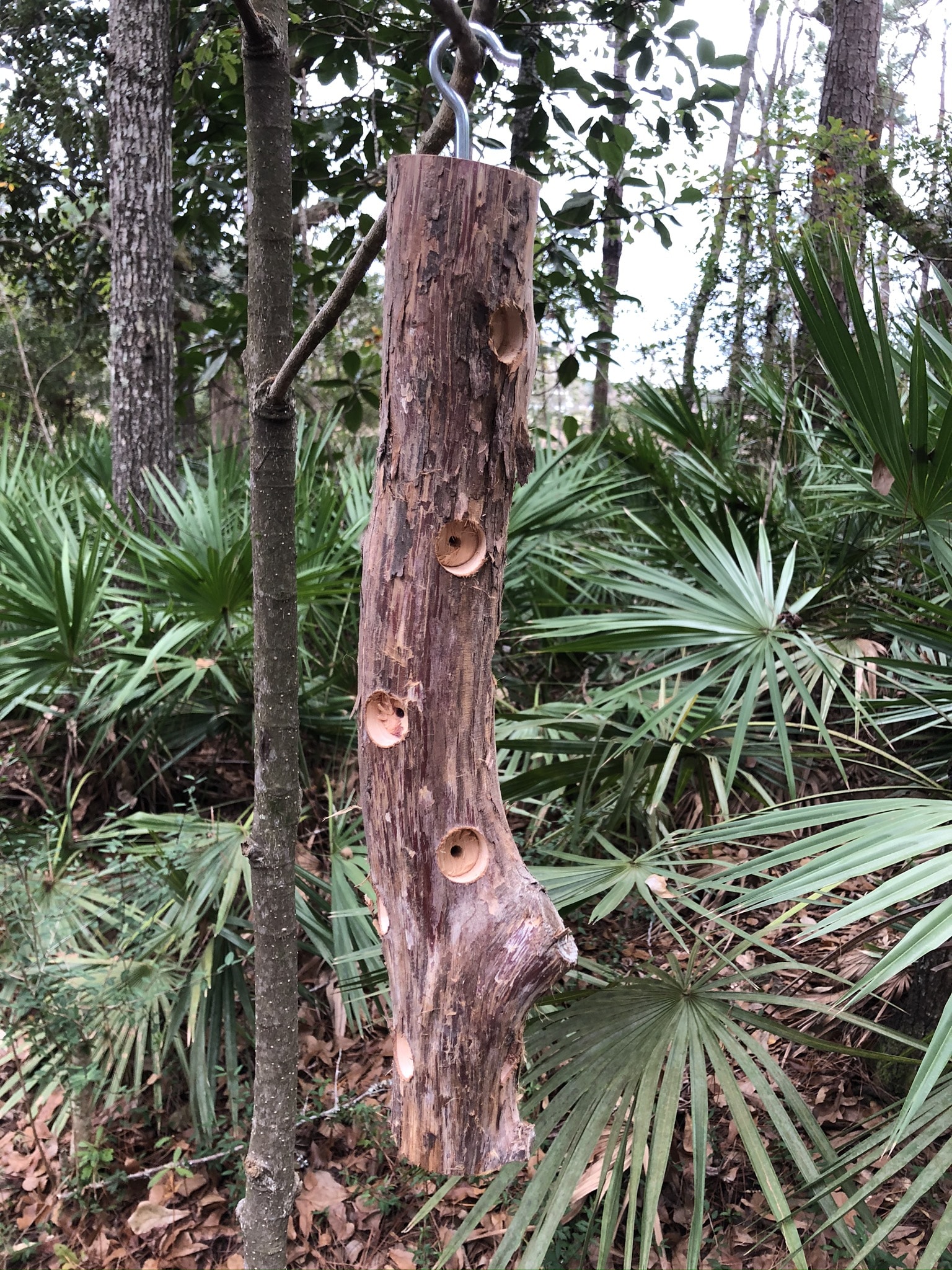Feeding birds in winter is all about keeping the seed feeders full. But not all birds eat seeds. Most birds will, however, feed on real or artificial suet: a form of fat that provides a ready source of energy in cold weather. Adding suet to the menu will bring new species of birds to your backyard and provide a treat to your seed eaters as well.
Suet is the hard fat found around the kidneys and loins in beef and mutton (also found in pigs). It is traditionally used in cooking or rendered into tallow that is used for making candles, soap, ointments and lubricants. For birds, the fat provides a high-quality source of energy. Birds are common visitors to animal carcasses in winter where they glean the remains for suet. In one report in Bird Watchers Digest many years ago, over 50 species of birds were observed visiting a mule deer carcass.
Although fatty tissue obtained from a local butcher is certainly an option, there are easier ways to provide suet. Suet cakes are readily available at local retail outlets. They are made using some form of lard, peanut butter, or both as the source of fat, with any number of additives, including seeds and bits of fruit for added value. Any number of homemade recipes can also be prepared with items typically found in your cupboard. Some require cooking while others do not.
My favorite non-cook recipe is called Marvel Meal. This soft form of suet can be placed on the trunk of a tree or in the holes of a log-style suet feeder.

Making this form of suet is a fun way to introduce kids to feeding and watching birds at home. Cream the following ingredients together in as much volume as you can manage. For me, 1-part equals 1 cup. Extra suet can be refrigerated until needed.
• 1-part smooth peanut butter
• 1-part vegetable shortening
• 1-part flour (not self-rising)
• 3-parts cornmeal
Once found, this mixture appears to be a magnet for all manner of birds, including many non-seed eaters. The name of the mixture says it all.
Have fun seeing new species of birds in your backyard.
Hope to see you in our great outdoors!